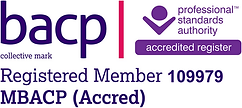Anxiety is something we all experience at times. It’s our brain’s way of keeping us alert to potential dangers or challenges. But for some, anxiety doesn’t switch off. It becomes constant, excessive, and overwhelming, which can point to Generalised Anxiety Disorder(GAD). This blog breaks down what GAD is, how to recognise it, and ways to manage it.
What Is Generalised Anxiety Disorder?
GAD is a mental health condition characterised by persistent and excessive worry about everyday situations. Unlike occasional anxiety, which might be linked to a specific event, GAD often involves worrying about many aspects of life – work, relationships, health, or even minor day-to-day tasks. These worries can feel uncontrollable and interfere with daily life.
6 Common Signs of GAD
- Excessive Worry
Do you find yourself constantly worrying, even about things that aren’t urgent or important? With GAD, this worry is disproportionate to the situation and can last for months. - Restlessness or Feeling on Edge
Many people with GAD describe feeling restless or unable to relax. It’s as if their body and mind are always bracing for something bad to happen. - Fatigue
Anxiety can be draining. Even if you’re not physically active, the constant mental effort of worrying can leave you feeling exhausted. - Difficulty Concentrating
Ever feel like your mind is stuck in a loop of worrying thoughts? This can make it hard to focus or complete tasks. - Muscle Tension
Anxiety often shows up in the body. Tight shoulders, a clenched jaw, or unexplained aches can all be signs of underlying tension caused by worry. - Sleep Problems
Trouble falling or staying asleep is a common complaint. Often, this is because your mind won’t stop racing when you’re trying to rest.
How Would You Know If You Have GAD?
If these symptoms feel familiar and persist for more than six months, it might be worth considering whether you’re dealing with GAD. It’s also important to reflect on how much these feelings impact your daily life. Do they stop you from doing things you enjoy or interfere with your work or relationships? A diagnosis of GAD should always come from a healthcare professional, so reaching out to your GP or a therapist is a good next step.
Strategies to Manage GAD
While GAD can feel overwhelming, there are effective ways to manage it. Here are some strategies:
- Challenge Your Thoughts
Anxiety often involves worst-case-scenario thinking. Try asking yourself, “Is this thought true?” or “What’s the evidence for and against this worry?” This can help you gain a more balanced perspective. - Practice Relaxation Techniques
Activities like deep breathing, progressive muscle relaxation, or mindfulness can help calm your body and mind. Even a few minutes a day can make a difference. - Create a Worry Time
Set aside 15 minutes each day to focus on your worries. Outside of this time, remind yourself that you’ll deal with those thoughts later. This can help contain the constant flood of anxiety. - Stay Active
Regular exercise is a natural stress reliever. Even a short walk can reduce tension and improve your mood. - Build a Support System
Talk to trusted friends or family about how you’re feeling. Sometimes just sharing your worries can help lighten the load. - Seek Professional Help
Therapy, such as Cognitive Behavioural Therapy (CBT) or Eye Movement Desensitisation and Reprocessing (EMDR), can be highly effective for managing GAD. In some cases, medication may also be helpful.
Final Thoughts
Generalised Anxiety Disorder can feel like a heavy burden, but it’s important to remember that you don’t have to carry it alone. With the right support and strategies, you can take back control and find relief from the constant worry. If this sounds like something you’re struggling with, consider reaching out to a mental health professional for guidance and support. You deserve to feel calm, focused, and free to enjoy life.






